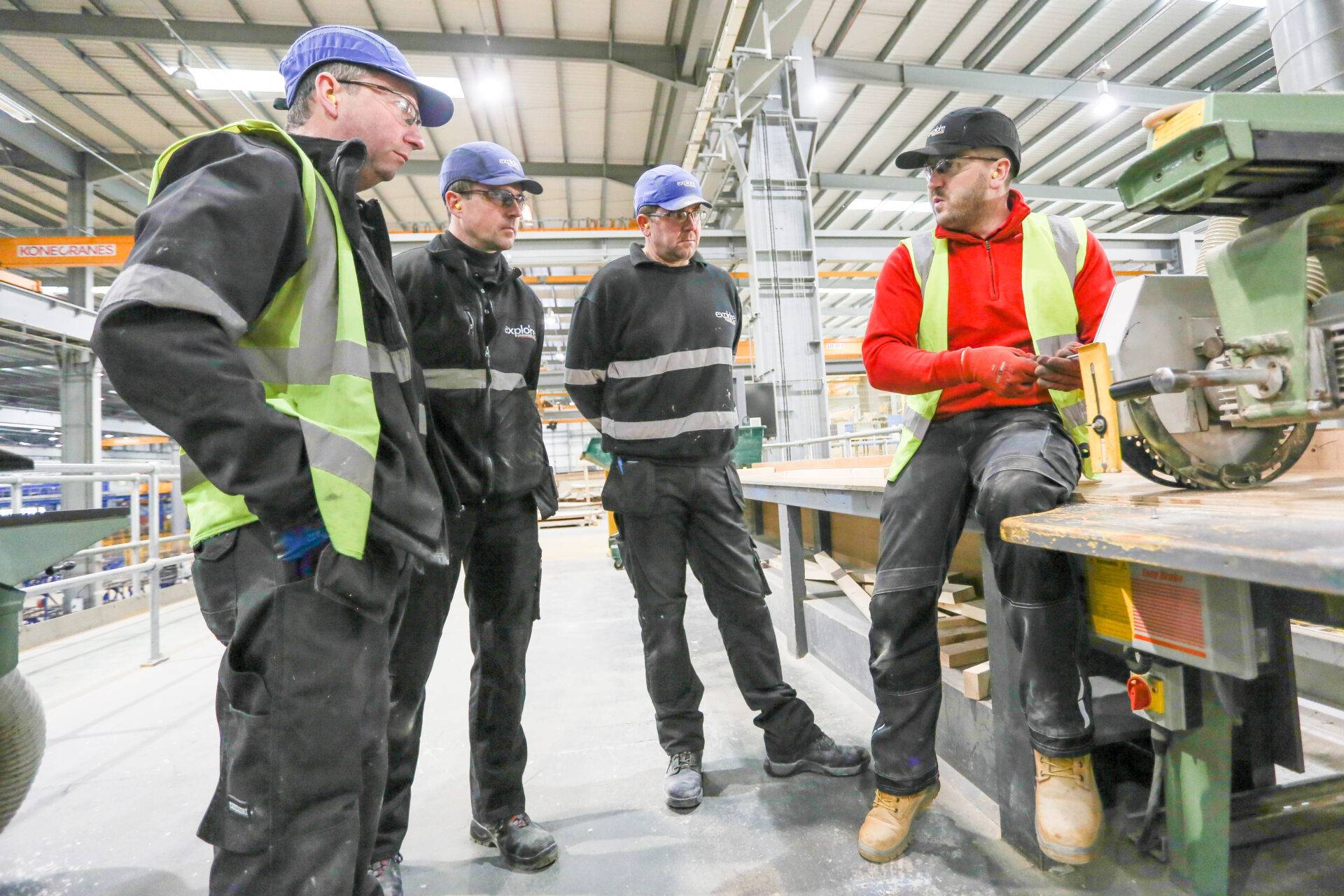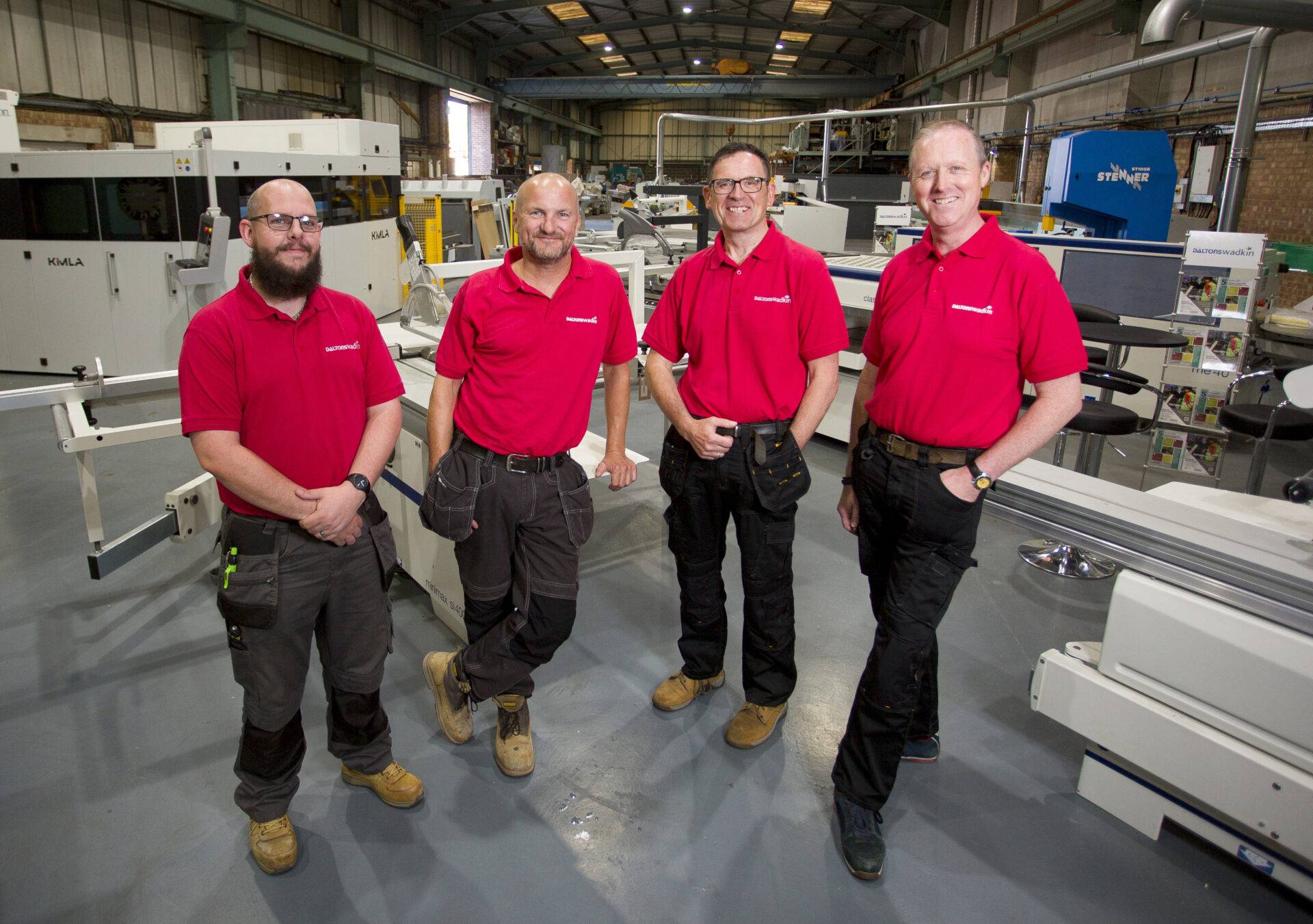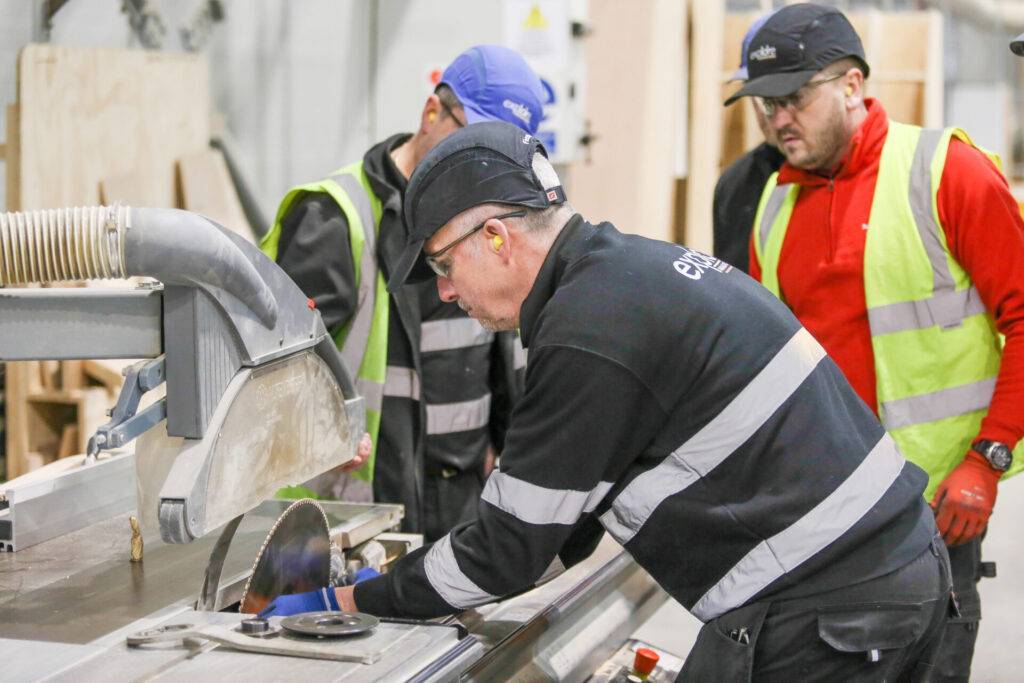Any employer operating woodworking machinery has a legal and moral obligation to ensure the safety of operators. One of the most effective ways to do this is by investing in appropriate operator training.
Not only is operator training a legal requirement set out by the UK Health and Safety Executive (HSE), but it also has numerous benefits for your business, including improving safety, quality, and reputation. In this article, we’ll explore operator training in the UK woodworking industry and the importance of choosing a reputable training provider such as Daltons Wadkin.
Legal requirements
Regulation 9 of the Provision and Use of Work Equipment Regulations (1) Every employer shall ensure that all persons who use work equipment have received adequate training for purposes of health and safety, including training in the methods which may be adopted when using the work equipment, any risks which such use may entail and precautions to be taken.
The HSE provides guidelines on the minimum level of training required for different types of machinery and processes, and failure to comply with these guidelines can result in fines, legal action, and workplace accidents. By investing in operator training, you can ensure that your employees are trained to the required standard and that your business is compliant with UK law.
Safety benefits

The primary benefit of operator training is improved safety in the workplace. Trained operators are better equipped to identify and avoid hazards in the workplace, reducing the risk of accidents and injuries. They also have a better understanding of how to use machinery and tools correctly, which can help to prevent equipment damage and breakdowns.
In addition, trained operators are more likely to follow safe working practices, such as wearing appropriate personal protective equipment and carrying out regular maintenance checks. This not only reduces the risk of accidents but also promotes a safety culture within your business.
Quality benefits
Investing in operator training can also improve the quality of your woodworking products and processes. Trained operators are more efficient and accurate in their work, resulting in better quality products and more efficient processes. They are also better able to troubleshoot problems and identify opportunities for process improvements, which can lead to cost savings and increased productivity.
Reputation benefits
Using a reputable training provider like Daltons Wadkin can also help to improve your business’s reputation. By investing in high-quality training for your employees, you demonstrate a commitment to safety and quality, which can help to increase customer confidence in your products and services. This can lead to repeat business, positive reviews, and increased profitability.
Why choose Daltons Wadkin
Daltons Wadkin have over 122 years experience in the woodworking industry. As a PIABC Quality Assured training provider, the company offers a range of certificated courses for all makes and models of woodworking machinery including hand operated power tools and abrasive wheels. The Daltons Wadkin “Red Team” of machine trainers are qualified assessors, each with a minimum of 10 years experience in the industry. Courses are practical, hands on and relevant to modern industry.
Conclusion
Investing in operator training is a smart decision for any employer operating industrial woodworking machinery. Not only is it a legal requirement, but it also has numerous benefits for your business, including improving safety, quality, and reputation. By choosing a reputable training provider like Daltons Wadkin, you can ensure that your employees are trained to the highest standard and that your business is compliant with UK law.
For more information on the range of training services offered by Daltons Wadkin, contact a member of the team on 0115 986 5201, email info@daltonswadkin.com or visit www.daltonswadkin.com










